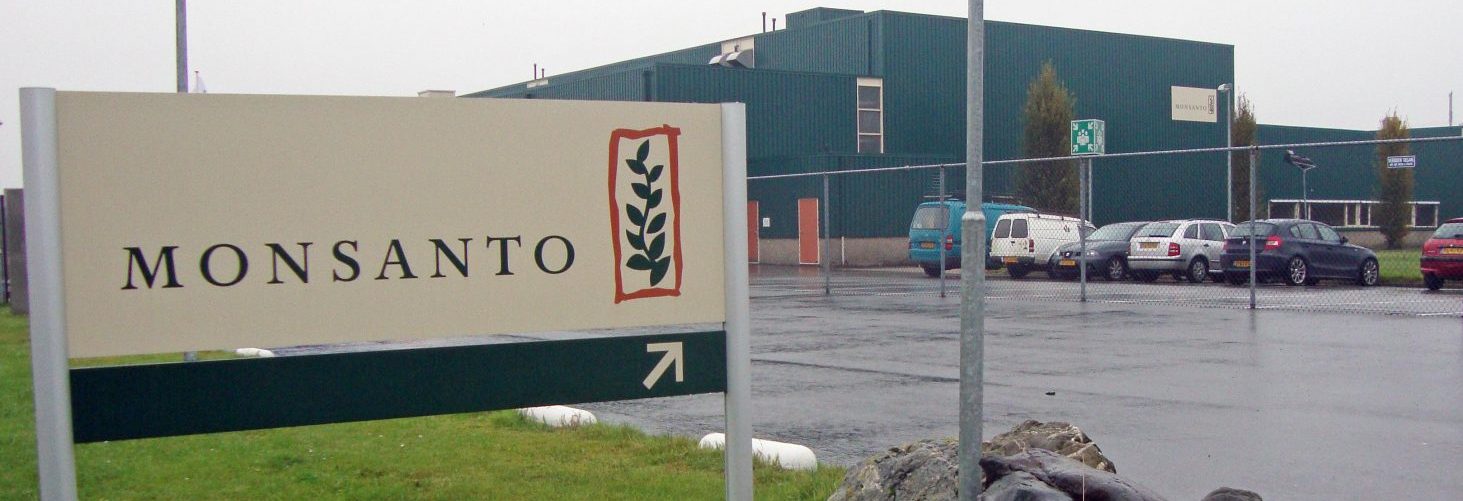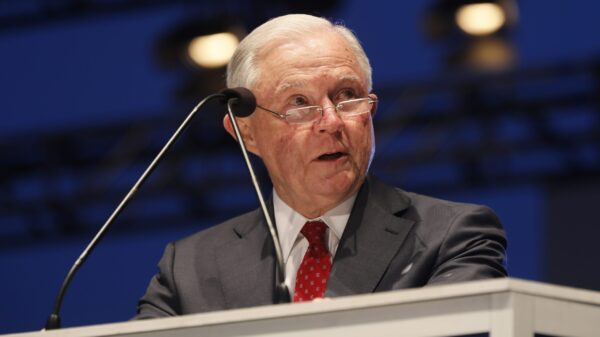By Brandon Moseley
Alabama Political Reporter
State Rep. Jim Carns, R-Vestavia Hills, is asking the Anti-Trust Division of the U.S. Department of Justice to take a serious look at a proposed merger between agrochemical giants Bayer AG and the Monsanto Company.
According to Monsanto CEO Hugh Grant, the merger would create a global integrated agricultural platform of seeds, crop protection biologics and digital farming.
“These are fancy words that could translate into putting the farming community in Alabama and the rest of the nation at risk by leaving the industry in the hands of a select few companies,” said Carns, who is chairman of the House Commerce and Small Business Committee.
Carns says that he is concerned because the global seed market is concentrated in four large companies: Monsanto, Bayer, Syngenta and Dow DuPont.
“Seventy percent of the cotton seed, 19 percent of corn seed, and 16 percent of soybean seed sold in the U.S. would be controlled by a Bayer-Monsanto merger,” he said.
Carns added that a Texas A&M study predicted a 75 percent probability that seed prices of both companies would increase by almost 14 percent should the merger be approved.
“From the perspective of sound competition, innovation, pricing, and commerce, this merger needs to be reviewed very closely and tough questions need to be answered before and action is taken,” said Carns.
“America’s farmers always put families first by producing the high-quality and affordable food we rely on,” said Dan Conston, chairman for Farmers and Families First. “Washington Policies should not burden farmers who are already experiencing consistently declining incomes, or hurt the average American family with increased prices on essential goods. We stand as an ally for farmers across the country and the customers they serve.”
Critics argue that the proposed merger of Bayer AG and Monsanto Company would create a $66 billion corporation with unprecedented control over the products farmers and agriculture businesses need to grow, produce and distribute high quality foods American families need. Farmers and ranchers depend increasingly on inputs like seeds, herbicides and pesticides to grow our food. Only a handful of companies produce those inputs worldwide, and two of the biggest seed giants – Monsanto and global agrochemical powerhouse Bayer, are in the process of merging.
The merger was proposed in the fall of 2016 and is currently under review by the European Commission, Brazil and the U.S. Department of Justice. Monsanto initiated the merger as an opportunity to combine seeds, traits, crop protection biologics and digital farming into a single “globally integrated agricultural platform.”
Scientists with Monsanto have been in the forefront of developing new crop varieties that are genetically modified to have special resistance to pesticides, insects, drought, etc. The farming community is increasingly dependent on these genetically modified organisms (GMOs), and the two biggest producers of these new patented seeds are Monsanto and Bayer. The result of these crop innovations has been greater integration of the seed and agricultural chemical markets and tighter consolidation of the entire agriculture industry which, according to research by Texas A&M, has already led to significantly higher seed prices.
Researchers at Texas A&M warn that allowing the merger of Monsanto and Bayer would create a single company with the largest share of the global market for all grain seeds and the seeds of a substantial number of vegetables like broccoli, green beans, carrots and onions. The new company would control more than a third of the global market for corn seed, nearly 70 percent of the global market for cottonseed and up to 69 percent of U.S. approved herbicide-tolerant seeds for alfalfa, canola, corn, wheat, soybean and cotton.
Consumers think if beef goes up they will just eat chicken or fish or go vegetarian, and except for making cornbread, they rarely directly purchase corn or soybeans. What they don’t fully understand is that if you control the seed business, farmers are going to pass those costs back to consumers, and the beef cattle, dairy cattle, hogs, chickens, pond-raised fish like catfish and tilapia, or even cage reared fish are all fed the same feed – which is increasingly produced by seeds grown by Monsanto and Bayer. Even vegetarians buy meat free products where grains and soybeans are often among the base ingredients. So a global monopolistic super conglomerate controlling most of the seeds for those base crops has the ability to control price, raising the prices of virtually every foodstuff.
Carns is a former Jefferson County commissioner and was co-chair of the Alabama Trump campaign.





















































